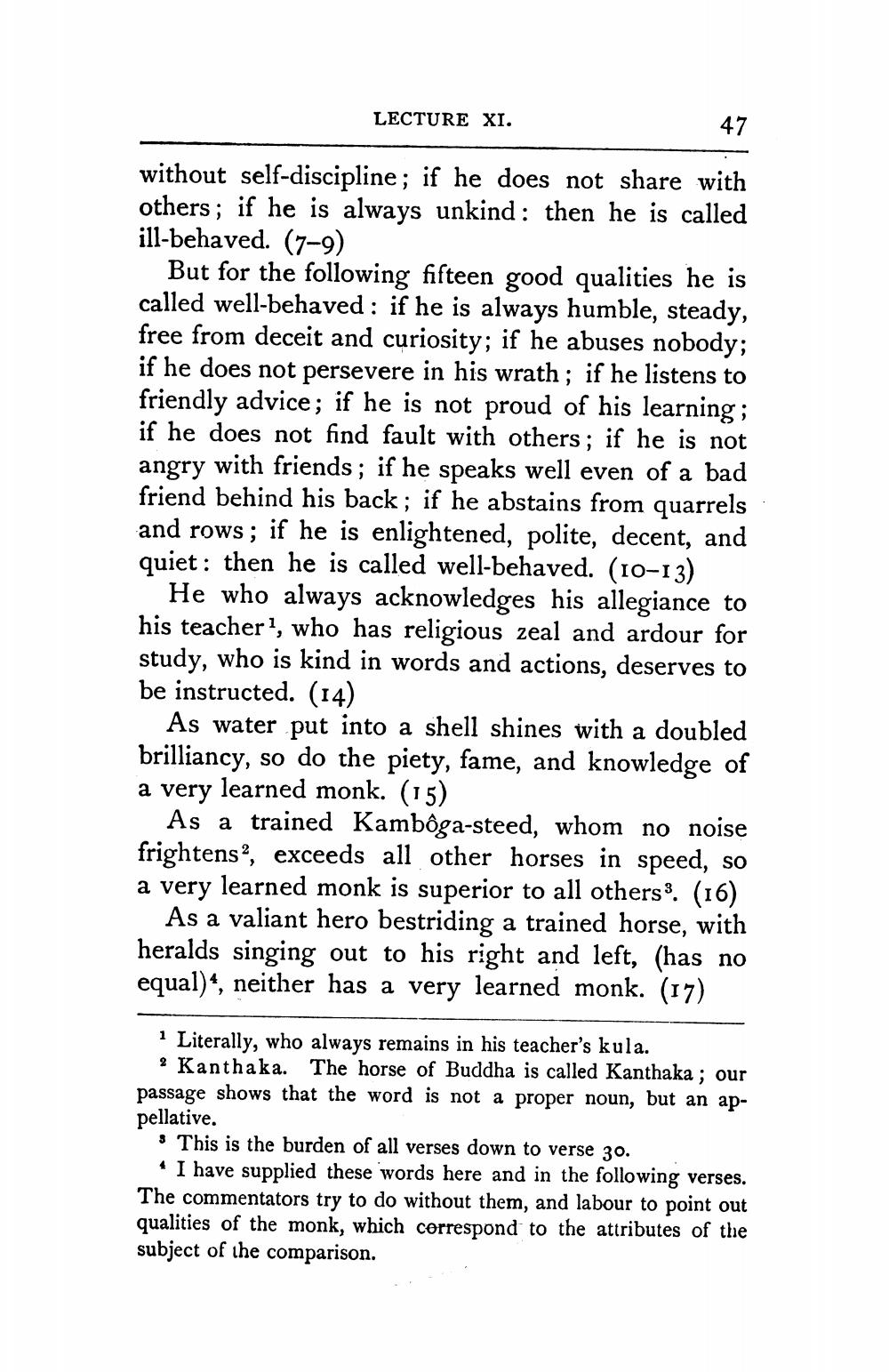________________
LECTURE XI.
47
without self-discipline; if he does not share with others; if he is always unkind: then he is called ill-behaved. (7-9)
But for the following fifteen good qualities he is called well-behaved: if he is always humble, steady, free from deceit and curiosity; if he abuses nobody; if he does not persevere in his wrath; if he listens to friendly advice; if he is not proud of his learning; if he does not find fault with others; if he is not angry with friends; if he speaks well even of a bad friend behind his back; if he abstains from quarrels and rows; if he is enlightened, polite, decent, and quiet: then he is called well-behaved. (10-13)
He who always acknowledges his allegiance to his teacher1, who has religious zeal and ardour for study, who is kind in words and actions, deserves to be instructed. (14)
As water put into a shell shines with a doubled brilliancy, so do the piety, fame, and knowledge of a very learned monk. (15)
As a trained Kambôga-steed, whom no noise frightens, exceeds all other horses in speed, so a very learned monk is superior to all others3. (16)
As a valiant hero bestriding a trained horse, with heralds singing out to his right and left, (has no equal), neither has a very learned monk. (17)
1
Literally, who always remains in his teacher's kula.
2 Kanthaka. The horse of Buddha is called Kanthaka; our passage shows that the word is not a proper noun, but an appellative.
This is the burden of all verses down to verse 30.
I have supplied these words here and in the following verses. The commentators try to do without them, and labour to point out qualities of the monk, which correspond to the attributes of the subject of the comparison.




